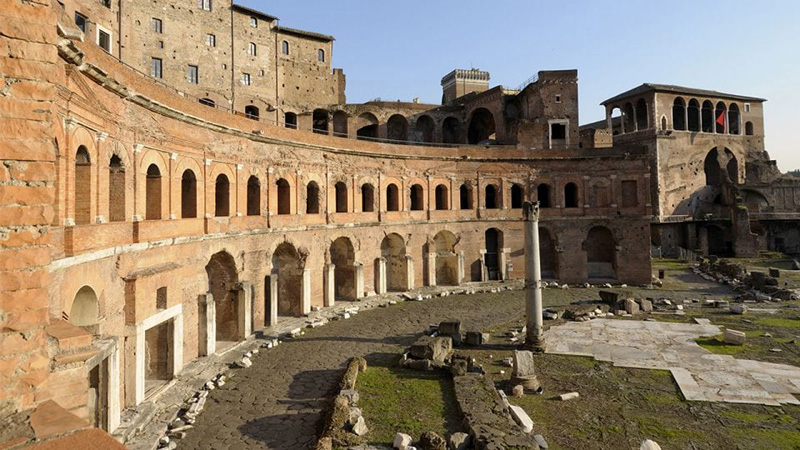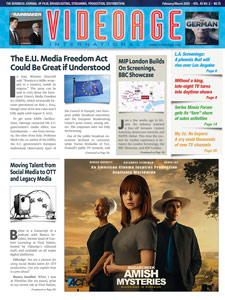After a 26-year absence, Prix Italia returns to Rome September 23-28 for its 71st edition. The “Prix,” as it is commonly called, is the world’s oldest radio-TV festival, and is sponsored by RAI, Italy’s state broadcast organization.
Last year, the itinerant Prix was held in Capri, where its very first edition took place in 1948.
Keeping with tradition, this year’s event will unfold in two venues. The first is Trajan’s Market, a complex built in 100 AD across the street from the Colosseum, in the heart of Rome. The other is the Exposition Palace, an imposing structure built in 1882 on Via Nazionale, which is a 10-minute walk from Trajan’s Market.
According to the Prix’s secretary general, Guarino Tarsilla Maria Karina Laterza (who mercifully goes by Karina Laterza most of the time), the Trajan’s Market venue will serve as Prix’s headquarters. It will house small working groups dealing with several issues concerning radio and television, the EBU Executive Board meeting on Wednesday, September 25, and the various juries that will select the winners of 11 prizes from the realms of radio, TV and the Web, including three “special prizes.”
The 61-year-old Laterza, who was appointed secretary general in 2017, is a trained TV journalist who’s been with RAI since 1991. Prix’s president is Britain’s Graham Ellis, deputy director, BBC Radio.
The seminars, which will celebrate “Diversity In A Global Media World,” will be held at Casa Di Rodi, a structure built in the year 1200, which is adjacent to Trajan’s Market. One of the seminars will focus on Africa and will utilize the whole day of September 26.
The spacious Exposition Palace will house larger working groups, the Eurovision Song Contest Workshop, and a number of creative forums. The Prix schedule also includes up to three daily debates that are open to the general public (the remaining events require registration).
Among the numerous events geared to professionals is the presentation of the eighth annual Morrione Prize, which offers awards to the best investigative TV news reports by journalists under 30 years of age.
Roberto Morrione (1941-2011) was a TV journalist who pioneered RAI’s 24-hour TV channel. However, the Prize will be given in Turin on October 27, while at the Prix the organizers behind the Morrione Prize will stage two seminars on various news topics: one on Monday, September 23, and the other on the following day. Both will take place at the Cariatidi Room in Casa Di Rodi on Piazza del Grillo.
The Young Laboratory (or YLab), which will be held in cooperation with Italian universities, is a Prix event in which students are invited to submit 90-second video clips. Also planned are video premieres around Rome’s suburbs of TV shows in competition.
By returning to Rome, Prix Italia is once again Italian television’s window on the world, which was its original mission. It lost this role in 2016 when the event was held in the remote and unaccommodating Lampedusa island, which lacked adequate hotel facilities. The following year, in 2017, the Prix moved to Milan, but did not fully reacquire the international status it held when the event was held in Turin (it was held in that venue for seven consecutive years, from 2009 to 2015).
Just as it did in 1993 — when it was last held in Rome — this edition of the Prix will be offering an international springboard to RAI’s new management team, which includes chairman Marcello Foa, a 56-year-old journalist and university professor, and president Fabrizio Salini, 53, a former FOX Italia, Sky Italia, and La7 TV network executive.
This year, the Prix gained 19 new members, including Brazil’s Record TV, Canada’s Telelatino Network, South Korea’s EBS, and A+E Networks from the U.S. These new members are now part of the current 47 public and private radio and television organizations (from 31 countries) that compose the Prix community.
VideoAge coverage of Prix Italia began in 1981 and is documented in a RAI publication now available online at: http://www.videoageinternational.net/wp-content/uploads/2013/12/videoage.pdf.












Leave A Comment